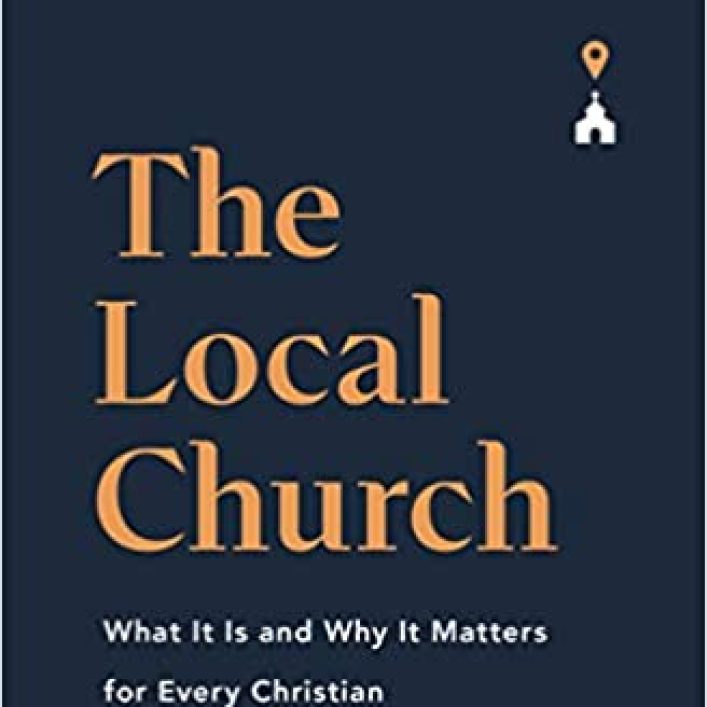The Local Church – Book Review
February 18, 2022

As Christians we believe that the church stands at the very centre of God’s redemptive purposes. Yet, despite this, a lot of confusion still exists regarding the church’s role and its mission.
Some people downplay the importance of the church; others are critical of the notion of church membership; whilst others view the church as a glorified social club, seeing it as no more than a place to enjoy a cup of coffee and a catch-up. So what is the church? And why does it matter?
In his book:‘The Local Church’, Pastor and trusted scholar, Edward Klink aims to “cut through the fog” and set the record straight, addressing what the Bible has to say about God’s intention for the local church body.
“Any talk of “the church” needs to begin with some deconstruction”
Although the book’s intention is to explain what the local church should be, Klink begins by dealing with some of the common misconceptions about the local church. He states that there needs to be a “removal of bad definitions and understandings before any good definitions and understandings can be appropriately built”. He explains that while some of us have grown up in the local church or joined later in life, many of us have a misunderstanding of what church is and why it exists.
“Why explain the Bible’s God-centred theology in a book on the church? Because before we can speak about the church, we must locate and define the church in relation to God”
Whilst the church building, events, people, outreach etc. are important, it is far too easy to make church all about us. If we lose our focus on God’s purposes, church can quickly become more about our own personal projects and agendas. But we are to remember that “God is both the source and the goal” and through the gathering of His people, He desires to display His love and His glory.
“The clear connection Scripture makes between a Christian and the church has been lost, minimised, or even rejected in our contemporary culture”
Throughout his book, Klink not only informs and educates, but he also challenges. Indeed, one of the most helpful aspects of this book is the bold challenge that is offered to professing Christians:
“To say that a person has a personal relationship with Jesus Christ is to speak about how a person becomes a Christian, not how a person lives as a Christian. Please Hear this: if Jesus is at the centre of your life, a local church is at the centre of your life. Who is the church? If you are a believer in Jesus Christ, then you are!”
Due to our hyper-individualised culture, our commitment to the local church is not what it should be. How many times have you heard someone profess to be a Christian, yet show little or no regard for the Church? In chapter 5, entitled: ‘What Is the Connection between a Christian and a Church’ we are told that at Creation, God created the institution of marriage, but this marriage covenant between man and woman points to a greater, more glorious, eternal covenant between Christ and His Bride. We read that “If you are a Christian, you have been wedded to Christ… and if you are wedded to the saving “body of Christ,” you are wedded to the gathered “body of Christ,” the church. The two cannot be separated…”. We can’t profess to be Christians and yet live a life separated from a local body.
“Although much of my writing thus far has been for scholars or trained pastors, this book was written with the layperson in view, the average Christian. That does not mean it avoids all meat, for I certainly intend to push readers to broaden their biblical and theological categories as they think about the Christian life and the church”
This book really does have something for everyone, and while there are practical ‘takeaways’ within its chapters, the author also gives worthwhile attention to theology. Klink (like all good teachers) skillfully manages to simplify complex ideas, thereby making the content accessible to all readers.
‘The Local Church’ has just under 200 pages, and six chapters; each chapter concluding with five questions relating back to the information in that chapter. It is therefore perfect for a small group setting. Even if you’re not much of a reader, you could comfortably read a chapter a day without it feeling too arduous.
Of the many books that have been published on the topic of the local church, this is definitely one of my favourites. Whether for personal reading, or group discussion; whether you are in church leadership, or a brand new convert, I would thoroughly recommend this book.